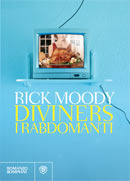What do you think?
Rate this book


546 pages, Paperback
First published January 1, 2005
"every single citizen [is] either part of the spectacle or part of the audience. There are...two categories of [person], the entertainers and the entertained."

The "almost freakishly gifted stylist" Rick Moody concocts his latest as if it were The Bonfire of the Vanities as written by James Joyce (or so says The Washington Post). Most critics (at least those on the coasts) agree that the author's writerly gifts give new life to the age-old practice of Hollywood satire. As always, he does go way over the top (for example, the overlong prologue waxes poetic about the sun rising across the globe, and don't we already know that the god of pop culture is a false god?), but most reviewers could forgive the lapses. More important, Moody seems to be having fun. And there's something divine in that alone.
This is an excerpt from a review published in Bookmarks magazine.